Ventricular Septal Defect is a heart defect in which there is a hole in the wall between the lower two chambers of the heart (ventricles).
VSD holes usually close on their own, although may need surgery or a catheter-based procedure to close the hole.
Blood pressure medicines or diuretics are used to treat symptoms such as -
The cost of Ventricular Septal Defect includes:
Preoperative diagnostic tests cost [blood tests, a chest X-ray, and an echocardiogram (ECG)]
Surgery cost (varies depending upon the type of cardiac implant used)
Post-Operative cost (depends on the number of follow-up sessions)
Types of implants (such as Amplatzer, Gore, STARFlex, etc.)
Medicine cost (blood thinners, antibiotics, etc.)
Patient's hospital stay
Note: Depending on the hole's size and the chances of a better prognosis, two types of procedures are available to treat VSD, i.e. Surgical - (Open-Heart Surgery) and Non-Surgical - (Catheter-Based Repair).
The overall cost of the procedure also varies based on the patient's condition and preferences. Some of these factors are:
Type of hospital and room opted (General, Twin sharing, or Single room)
The severity of the disease
Post-surgical complication, if it happens (such as bleeding, blood clot, infection, etc.)
Cost of lobod products (if required)
An extended stay at the Hospital
Cost of accommodation during follow-ups, in case the patient is not a local resident
Listing approximate price of Ventricular Septal Defects Treatment and some related procedures. The prices may change depending upon the centers and condition of the patient.
| Treatment name | Cost range |
|---|---|
| Ventricular Septal Defect (VSD) Treatment | USD 11700 to USD 14300 |
| Device Closure- ASD VSD | USD 22500 to USD 27500 |
Popular Cities in Germany for Ventricular Septal Defects Treatment are:
Listing popular specialists:
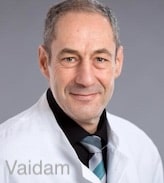
Director, 34 years of experience

Cardiac diagnostics/Coronary vessel interventions Univentricular heart Laser light coronary plaque imaging Implanting pacemakers/defibrillators/ICDs Cardiac ablation for arrhythmias Cardiovascular disease prevention
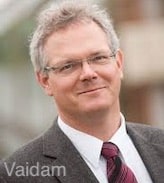
Director, 32 years of experience

Cardiac Catheterization Cardiovascular Medicine Catheter interventional procedures Pulmonary Hypertension Cardiovascular Hypertension Heart Failure Echocardiography
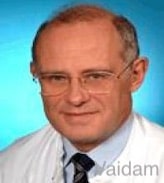
Senior Consultant, 30 years of experience

Image-guided Surgery Endoscopic Cardiac Surgery Minimally Invasive Cardiac Surgery Mechanical Circulatory Assist Minimally-invasive and endoscopic valvular surgery Arterial and minimally-invasive coronary revascularization Bypass surgery Mechanical circulatory support Cardiac insufficiency
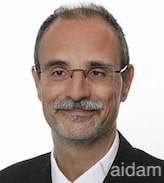
Director, 31 years of experience

Neurological diseases Gastroenterological / Hepatological Diseases Pulmonological diseases Hormonal diseases Infectious diseases Cardiac Catheterization Cardiovascular Medicine Catheter interventional procedures Pulmonary Hypertension Cardiovascular Management of Metabolic diseases in pediatrics Management Mitochondrial diseases in pediatrics Diagnosis and treatment of Diabetes mellitus in childhood and adolescence Hypertension Heart Failure Echocardiography
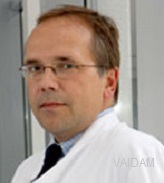
Senior Consultant, 18 years of experience

Prenatal screening, Comprehensive range of interventional therapy options, Diagnosis and treatment of cardiac irregularity
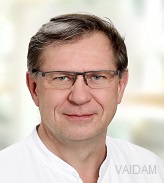
Prof. Dr. Med. Martin Kostelka
Senior Consultant, 32 years of experience

Ventricular septal defects, Sinus venosus defects, Transposition of large vessels, Fallot's tetralogy, Complete and partial AVSD (Atrioventricular Septal Defect)
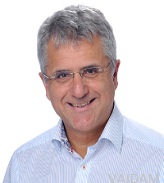
Chief, 20 years of experience

Prenatal diagnostics of congenital heart defects Pediatric Intensive care Heart and heart-lung transplant Invasive, non-invasive, surgical diagnostic and therapeutic interventions Special Counselling
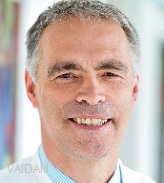
Prof. Dr. Med. Johannes Breuer
HOD, 27 years of experience

3D echocardiography, Fetal echocardiography, Aortic valves, Blood vessels
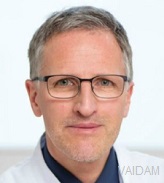
Prof. Dr. Rainer Kozlik Feldmann
Director, 27 years of experience

Catheter intervention, Pulmonary hypertension, Heart transplant, Pediatric intensive care medicine, Neonatology, Pediatric intensive care medicine
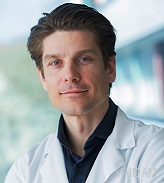
Head of Department, 25 years of experience

Pediatric cardiac surgery, Surgery for congenital cardiac, Thoracic vascular diseases
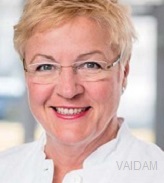
Prof. Dr. med. Brigitte Stiller
Director, 32 years of experience

Atrial Septal Defect (ASD), Patent Ductus Arteriosus (PDS), Ventricular Septal Defect (VSD), Pulmonary Stenosis (PS), Aortic Stenosis (AS), Coarctation of Aorta (COA)
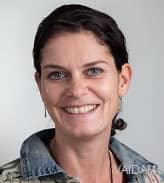
Consultant, 19 years of experience

Aortic coarctation, Aortic valve stenosis, Arrhythmia, Cardiomyopathy, Patent ductus arteriosus (PDA)
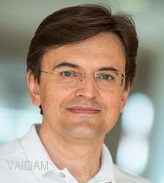
Prof. Dr. med. Tsvetomir Loukanov
Head of Department, 22 years of experience

Cardiac surgery using the hybrid procedure, Beating heart surgery, Vascular compression syndromes of the intrathoracic trachea, Valve reconstruction, Univentricular heart, Aortic arch and tracheal surgery
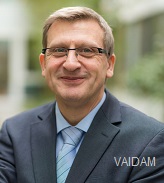
Head of Department, 24 years of experience

Congenital heart defects, Cardiac catheter examinations and interventions
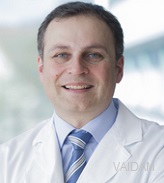
Prof. Dr. med. Robert Cesnjevar
Head of Department, 22 years of experience

Correction of atrial septal defects, Treatment of tetralogy of fallot, Correction of double outlet right ventricle, Ross procedure, Fontan procedure, Correction of the atrioventricular canal defect
Our Services for Ventricular Septal Defects Treatment in Germany
Transparent - Professional - Without Hassles






NABH Certified Healthcare Discovery Platform
Vaidam is NABH certified healthcare discovery platform that will connect you to top-notch medical experts, hospitals, wellness options, and trusted travel partners to help identify and make the right healthcare choices.

Researched & Personalized Treatment Plan - Under One Roof
You can search for the best hospitals, read about them, view photographs of the facilities at the hospitals and the places at which the hospitals are located, and check the cost of treatment.

Quality Treatment Within Your Budget
As soon as you post an enquiry, the patient relation team will collect details from you, share them with the doctors and hospitals on Vaidam's panel, and get a personalized treatment plan. We research to get quality treatment within your budget.

Treatment to Travel
Vaidam concierge assists patients, to get medical Visa, the best airline fares and arrangements for your stay. Our concierge also helps you with daily travel, language, and food concerns. Vaidam does everything to be your perfect host. All of Vaidam’s services are free of cost to patients.

International Reach
Vaidam Health has network in 15+ countries, which includes India, Turkey, UAE, Germany, South Korea, Thailand, Malaysia, Spain.
Note: Vaidam Health does not provide medical advice, diagnosis or treatment. The services and information offered on www.vaidam.com are intended solely for informational purposes and cannot replace the professional consultation or treatment by a physician. Vaidam Health discourages copying, cloning of its webpages and its content and it will follow the legal procedures to protect its intellectual property